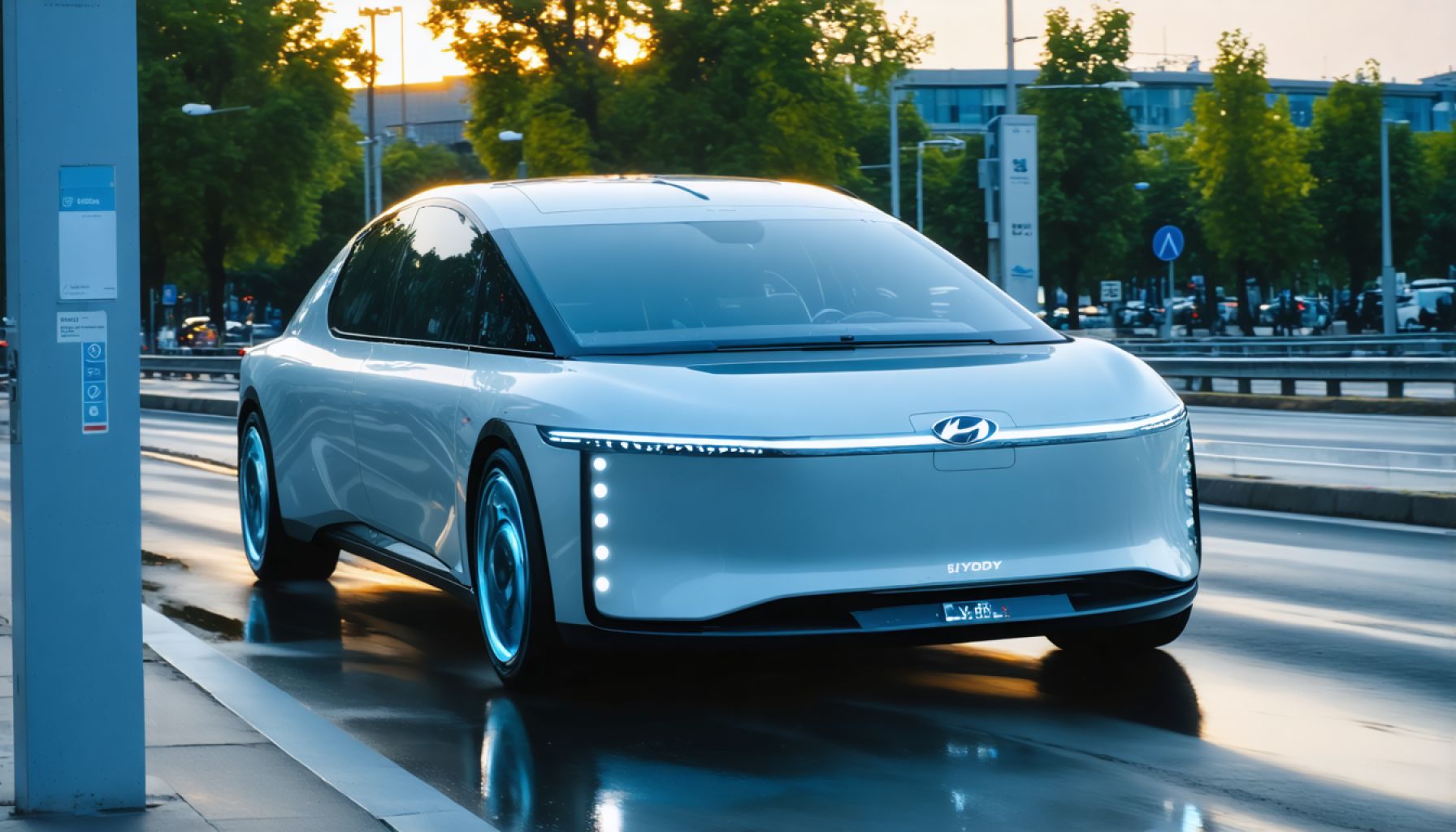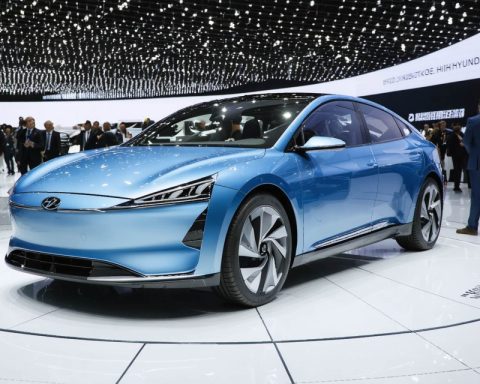- Hyundai is transforming urban mobility with advancements in electric vehicles (EVs), autonomous technology, and robotics.
- The company’s commitment to electrification includes plans to sell over 1.87 million electric vehicles annually by 2030, led by models like the Hyundai IONIQ 5.
- Hyundai explores Urban Air Mobility (UAM) with the development of eVTOL vehicles, aiming to reduce urban congestion and commute times.
- Autonomous technology is a focus, with the Motional joint venture working on deploying driverless vehicles on public roads by 2023.
- Robotics integration is boosted by Hyundai’s acquisition of Boston Dynamics, envisioning a future with task-oriented robots.
- The broader impact includes a cleaner, safer, and more connected urban life, merging human and machine for enhanced quality of life.
Hyundai, a name often associated with reliable and affordable vehicles, is steering its vision towards a revolutionary future in urban mobility. The South Korean automaker stands ready to redefine how we move through cities, and their latest advancements prove it.
Imagine a bustling cityscape, where cars breeze through smart intersections, and drones quietly deliver parcels, reducing traffic congestion on the ground. Hyundai is not just imagining this future; they are actively creating it. With strong strides in electric vehicles (EVs), autonomous technology, and even robotics, Hyundai aims to lead the charge toward a cleaner, safer, and more connected urban life.
The centerpiece of Hyundai’s strategic pivot lies in their commitment to electrification. The company plans to invest heavily in EV technologies, aiming to sell more than 1.87 million electric vehicles annually by 2030. The sleek Hyundai IONIQ 5, which takes cues from the classic 1970s Hyundai Pony, serves as a testament to their dedication. Its design boasts clean lines and a futuristic feel, equipped with rapid-charging capabilities that can power the car to 80% in just 18 minutes.
But Hyundai’s vision extends beyond the highways. In a bid to address urban traffic woes, they are exploring Urban Air Mobility (UAM) solutions. Picture air taxis gliding above city streets. Hyundai’s development of eVTOL (electric Vertical Take-Off and Landing) vehicles promises to transform urban skies into efficient travel corridors, cutting commute times and slashing carbon footprints.
Automation is another arena where Hyundai excels. The company plans to introduce autonomous vehicle technology in urban areas by leveraging artificial intelligence and machine learning. Their partnership with Aptiv to create the Motional joint venture exemplifies their forward-thinking approach. By 2023, these driverless wonders will be testing their mettle on public roads.
Hyundai’s exploration into robotics also expands their urban mobility solutions. Their acquisition of Boston Dynamics underscores a commitment to integrating robotics into everyday life. Picture a future where task-oriented robots assist in daily chores, from cleaning to package delivery.
Why does this matter? Hyundai is shaping a future where urban mobility marries efficiency with sustainability. The broader takeaway: embracing innovative approaches can redefine how we interact with our environments, impacting everything from climate change to quality of life.
Hyundai’s soaring ambitions suggest that our future cities could blend the best of technology and transportation, yielding a symbiosis of human and machine that makes life not just more connected, but truly harmonized. As Hyundai fuels its path forward, it’s clear that this visionary automaker is not just keeping pace; they’re setting it.
Revolutionizing Urban Mobility: How Hyundai is Leading the Charge
Introduction
Hyundai is no longer just a name on affordable sedans and SUVs. The South Korean automaker is poised at the forefront of a mobility revolution that will redefine urban living. Their multi-faceted approach toward electric vehicles (EVs), autonomous technology, and cutting-edge robotics foretells a transformative vision for future cities. Let’s explore some less-discussed aspects and implications of Hyundai’s advancements.
Hyundai in the EV Market: Key Insights and Forecasts
Hyundai’s investment in EV technologies is a cornerstone of their future plans, aiming for 1.87 million annual electric vehicle sales by 2030. This ambitious target speaks to Hyundai’s commitment to reducing carbon emissions and promoting sustainable transportation. The Hyundai IONIQ 5 exemplifies their innovation in design and function, offering rapid charging and impressive range capabilities, which may position Hyundai as a frontrunner in the competitive EV market.
Urban Air Mobility: The Future of City Transport
Hyundai’s venture into Urban Air Mobility (UAM) signifies a groundbreaking approach to urban traffic challenges. Their eVTOL vehicles, akin to air taxis, could drastically reduce commute times and alleviate ground congestion. According to the link name, the UAM market could reach a valuation of $1.5 trillion by 2040, with Hyundai at its helm.
Automation and Robotics: Expanding Urban Solutions
Hyundai’s collaboration with Aptiv through the Motional joint venture is set to push the boundaries of autonomous driving. These driverless vehicles will leverage AI and machine learning to navigate complex urban landscapes. By integrating Boston Dynamics, Hyundai also ventures into robotics, imagining a future where robots support everyday activities, thus reshaping urban living.
How to Prepare for the Future of Mobility
1. Embrace EV Technology: As cities prepare for more EV infrastructure, consider transitioning to electric vehicles to aid the sustainability movement.
2. Stay Informed on UAM Developments: Follow advancements in air mobility solutions as they promise time-saving and convenience benefits.
3. Explore Automation Benefits: Understand how autonomous technology can influence daily commuting. Engaging with pilot programs can offer firsthand experience.
4. Integrate Robotics: Explore home robotics for task management and efficiency to future-proof your lifestyle.
Pros and Cons Overview
– Pros:
– Commitment to sustainability and reduced emissions.
– Potential for significantly reduced urban traffic congestion.
– Enhanced safety and convenience through automation.
– New economic opportunities in the robotics and AI sectors.
– Cons:
– High initial costs of technology development and integration.
– Regulatory challenges surrounding air mobility solutions.
– Need for significant infrastructure developments.
Conclusion and Actionable Steps
Hyundai’s pioneering role in urban mobility suggests a meticulously connected and efficient urban future. As technologies evolve, staying informed about trends and aligning personal choices with sustainable options will position individuals to benefit from these changes. Keep an eye on Hyundai’s initiatives, and consider how adopting these technologies can enhance your quality of life.
For more information, visit the Hyundai website.
Quick Tips:
– Test drive an electric vehicle to experience the difference firsthand.
– Follow industry news on autonomous technology and UAM for the latest insights.
– Explore home automation options that sync with your lifestyle for improved efficiency and sustainability.













